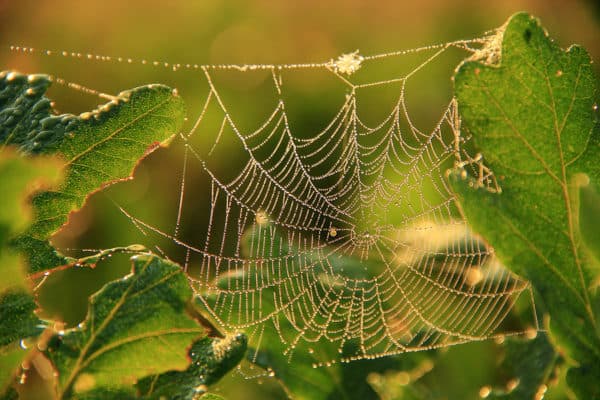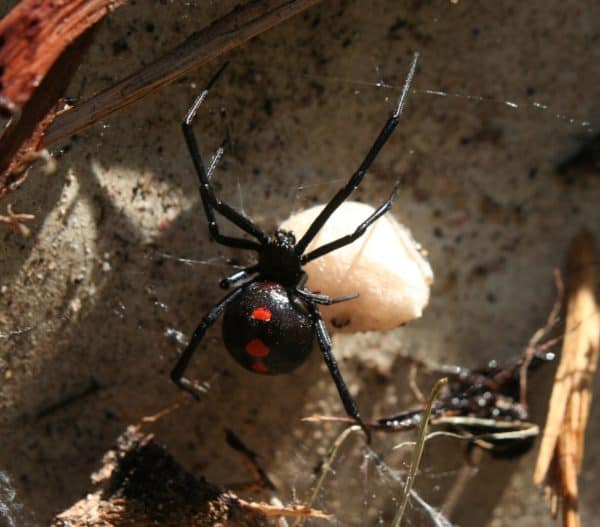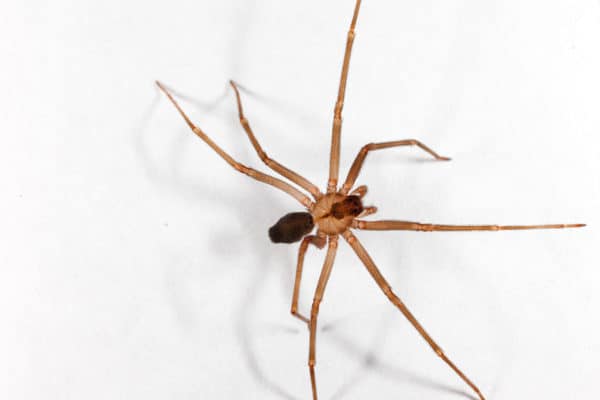READY TO GET STARTED?
REQUEST A FREE ESTIMATE
Fill out the form below or call (888) 466-7849 for a free, no-obligation estimate.

One of the most common questions that arises when a spider is found in a home is “is that spider poisonous?” That’s a trick question. Most spiders are poisonous, yet only a handful are venomous. Poisonous spiders release their toxins when they are inhaled, ingested or absorbed through the tissue or skin; in other words, they’re only harmful if you eat them. Venomous spiders, on the other hand, inject their toxin with a fang-like apparatus known as a chelicerae. These are the spiders you should be worried about and avoid contact with.
While there are more than 20 species of spiders in Georgia, there are only 2 that are known to be dangerous to humans: the black widow and the brown recluse. Like most common spiders, biting humans is a last line of defense. They are more likely to flee, hide, or even play dead rather than bite a human. It takes a long time for a spider to replenish his supply of venom after he injects it. Most will only use this defense mechanism if they have no other choice. Wasting venom on a human can even cause the spider to starve to death before his supply is replenished as he will have no means to kill any prey he catches.
Let’s take a closer look at each of the venomous spider species in Georgia, as well as some general tips to prevent spiders from getting into your home.

The black widow spider is considered to be the most venomous spider in North America. It is only the female black widow, however, that is dangerous to humans. Black widows are a red and black spider that is usually about 1.5 inches long with a shiny, globular abdomen and a reddish hourglass shape on its underside. While they are mostly black in color, they can sometimes be brown. The venom of a black widow spider is reportedly 15 times stronger than that of a rattlesnake. While black widow bites can be fatal to the young, the elderly, and those with compromised immune systems, most victims suffer no serious or long term damage from the bite. Black widows are not aggressive and bites commonly occur as a result of accidental contact. Common symptoms from a black widow bite include redness, swelling and tenderness at the site of the bite, muscle aches, nausea, and sometimes paralysis of the diaphragm which can cause difficulty breathing.

The brown recluse spider is also known as the violin spider or the fiddleback spider. The brown recluse is a light brown spider with a dark, violin-shaped marking on its back with the neck of the violin pointing toward the rear of the spider. They also have a very distinctive eye pattern with a semi-circular arrangement of 6 eyes (3 sets of 2) while most spider species have 8 eyes. Adult brown recluses are about the size of a quarter. They usually live outdoors under rocks, woodpiles, logs, etc. but are also well adapted to living indoors with humans. Once inside they are commonly found in attics, garages, basements, and are even known to wander into shoes, clothing, and bedding. They hunt at night and retreat to dark, secluded places in the daytime. The brown recluse is typically not aggressive and usually only bite when they are inadvertently trapped against human skin (rolling over on them in the bed or slipping your foot into a shoe they have crawled into for hiding). While bites are rare they can cause serious wounds and infections. The majority of bites remain localized, becoming red, swollen and tender at the site of the bite. If left untreated, a necrotic lesion may develop, usually accompanied by a central blister.
Keep your garages, attics, sheds, basements, and other areas that aren’t utilized often clean and clear of clutter. Try to avoid leaving clothing and shoes on the floor and store them in plastic bins if possible. Shake out any clothing that has been left on the floor or in a hamper before wearing or washing.
Seal any cracks and crevices around your home. Spiders can get in through damaged window screens or cracks in your siding. Inspect the outside of your home seasonally and make any repairs necessary.
Inspect any items that are brought from outdoors into your home. This includes any packages delivered to your porch or steps, groceries that may be placed on the driveway or porch as you are unloading, boxes of decorations being brought in from storage, or used appliances that are bought secondhand.
Contact a licensed pest control company if you suspect you have a spider problem. A professional pest control technician can inspect the exterior and interior of your home to help identify any possible entry points, identify the type of spiders and other pests you may be having issues with, and properly, safely, and effectively treat any pest problems they may encounter.
Request a Free Estimate to Get Started.
Avoid Bites and Stings This Summer
The Summer Big Three: Roaches, Mosquitoes, & Termites
Categories